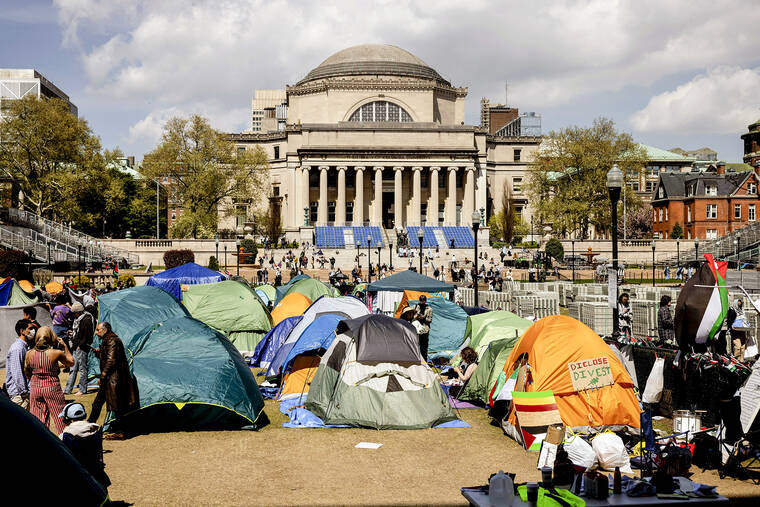Columbia protesters say they’re at an impasse with administrators and will continue anti-war camp
NEW YORK — Columbia University students who inspired pro-Palestinian demonstrations across the country said Friday that they reached an impasse with administrators and intend to continue their encampment until their demands are met.
The announcement after two days of exhaustive negotiations came as Columbia’s president faced harsh criticism from faculty and puts more pressure on university officials to find a resolution ahead of graduation ceremonies next month — a problem that campuses from California to Massachusetts are facing.
ADVERTISING
As the death toll mounts in the war in Gaza and the humanitarian crisis worsens, protesters at universities across the country are demanding that schools cut financial ties to Israel and divest from companies they say are enabling the conflict. Some Jewish students say the protests have veered into antisemitism and made them afraid to set foot on campus.
Student negotiators representing the Columbia encampment said that after meetings Thursday and Friday, the university had not met their primary demand for divestment, although there was progress on a push for more transparent financial disclosures.
“We will not rest until Columbia divests,” said Jonathan Ben-Menachem, a fourth-year doctoral student.
Columbia officials had said earlier that talks were showing progress.
“We have our demands; they have theirs,” university spokesperson Ben Chang said, adding that if the talks fail, Columbia will have to consider other options.
Meanwhile, Columbia’s president, Minouche Shafik, faced a significant — but largely symbolic — rebuke from faculty Friday but retained the support of trustees, who have the power to hire or fire the president.
A report by the university senate’s executive committee, which represents faculty, found Shafik and her administration took “many actions and decisions that have harmed Columbia University.” Those included calling in police and allowing students to be arrested without consulting faculty, failing to defend the institution in the face of external pressures, misrepresenting and suspending student protest groups and hiring private investigators.


